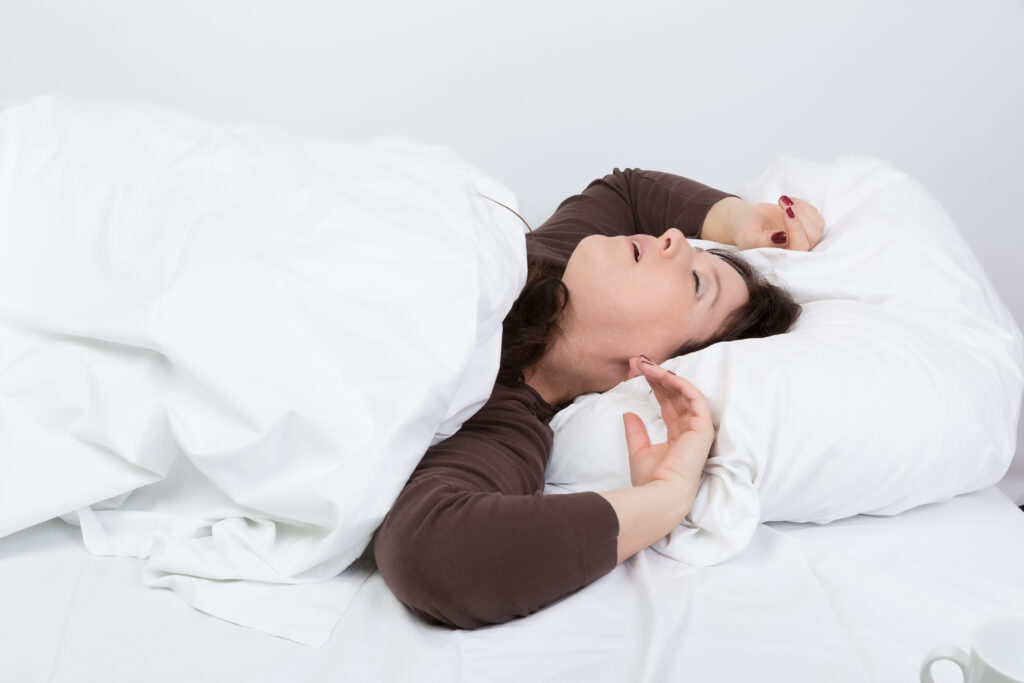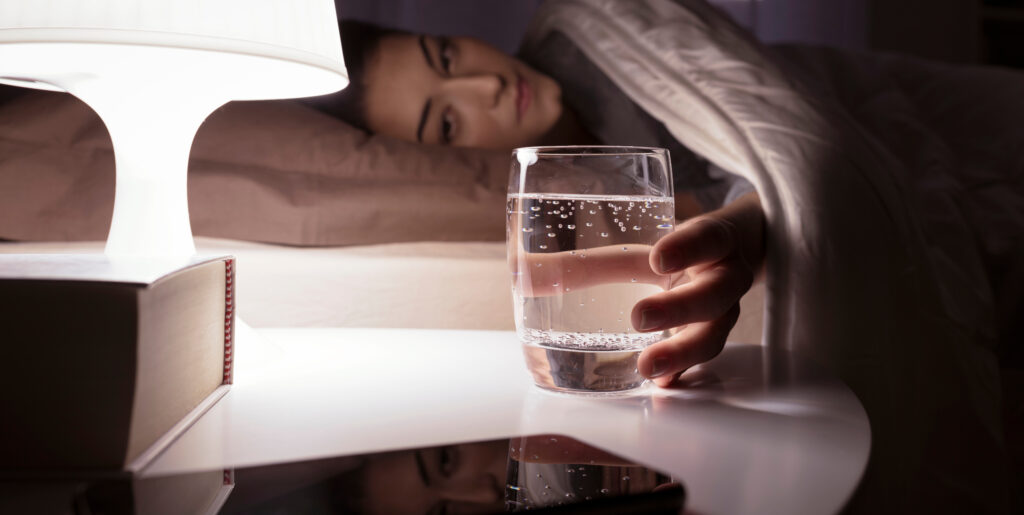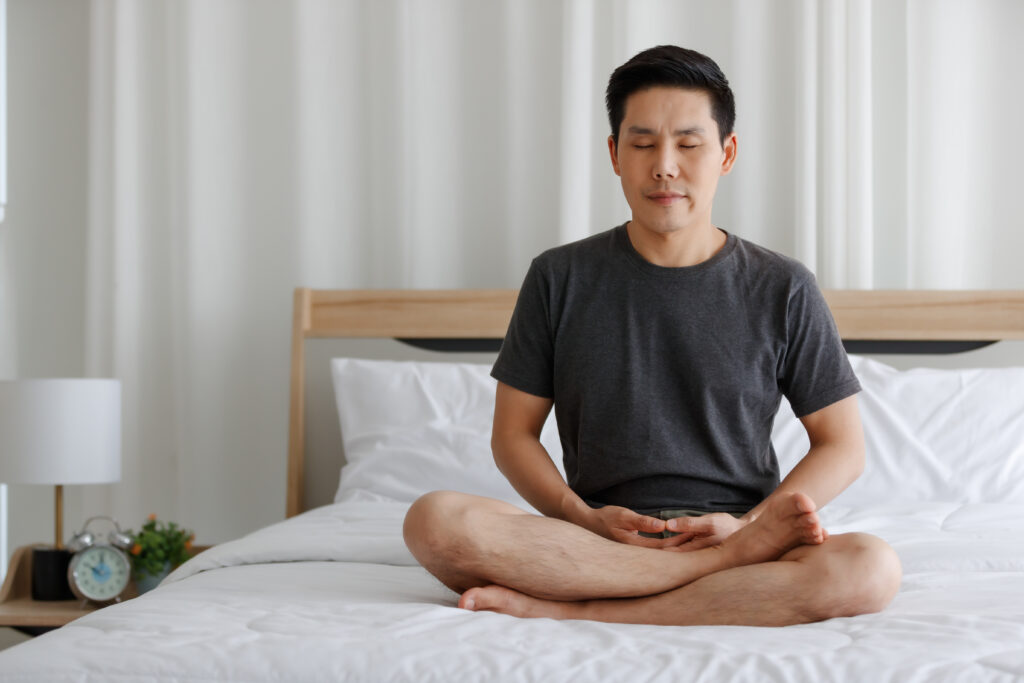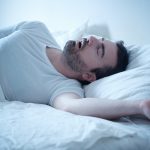July 19, 2023
How to Get More REM Sleep
Any type of sleep is important for your overall health. Sleep can improve your mood and brain performance. It can also give you energy and protect you against illnesses and diseases.
 Though all stages of sleep are good for you, REM sleep is especially important. If you don’t get enough REM sleep, your immune system can weaken, and you may experience more frequent mood swings. These are just some of the many things that can happen if you lack REM sleep.
Though all stages of sleep are good for you, REM sleep is especially important. If you don’t get enough REM sleep, your immune system can weaken, and you may experience more frequent mood swings. These are just some of the many things that can happen if you lack REM sleep.
Healthcare Associates of Texas is home to a team of highly experienced sleep specialists who can help you benefit from a better night’s sleep. Here are tips on getting more REM sleep and requesting an appointment with us if you think you may need treatment for a sleep disorder.
What Is REM Sleep?
REM stands for “rapid eye movement.” It is the last and deepest stage of sleep you can possibly get and occurs about 90 minutes after you fall asleep.
During the REM sleep stage, your eyes move rapidly back and forth under your eyelids. Most of your dreams take place during this time. Your muscles become temporarily paralyzed during REM sleep so that you do not act out your dreams while lying in bed. Additionally, your heart rate and blood pressure are elevated during REM sleep, similar to when awake.
Why Is REM Sleep Important?
REM sleep plays an important role in your memory, emotional processing and brain development.
Without enough REM sleep, you may have difficulty remembering things and retaining long- and short-term memories. You may have problems coping with emotions, given how the part of your brain that processes emotions (the amygdala) is activated during REM sleep.
REM sleep promotes good brain development — especially in newborns and infants. This is partly why it’s so important for babies to take naps and for adults to get quality sleep every night.
7 Tips for How to Get More REM Sleep
If you think you may lack REM sleep, try one or more of these seven ways to log more REM sleep time.
1. Develop a Sleep Schedule
Wake up and go to bed at the same time every day — even on weekends. Your body will eventually get used to a sleep schedule, so you will be more alert and sleepy at the appropriate times.
2. Avoid Alcohol and Caffeine at Night
Alcohol works as a sedative that can help you relax. Though alcohol can make you sleepy, drinking any alcohol in the evening close to bedtime can lead to restlessness and cause you to stay awake at night.
Within a few hours of drinking, your body metabolizes alcohol and breaks it down into several byproducts. One of these byproducts is glutamate, which excites your nervous system. This is why you may suddenly jolt awake in the middle of the night after drinking alcohol and have problems falling back asleep.
Caffeine is a stimulant and can keep you up for hours if you drink it too close to bedtime.
Limit your alcohol and caffeine intake to earlier times in the day. This gives your body enough time to metabolize these substances and break them down long before you go to sleep.
3. Create a Relaxing Bedtime Routine
Activities like exercising vigorously, listening to loud music or watching a scary movie can all stimulate your body and interfere with your ability to fall asleep quickly. Take time to evaluate whether you’re doing certain activities at night that could prevent you from getting enough REM sleep. Then, swap out those activities for those that are more relaxing.
Watch less TV and try reading a book instead. Swap out rock music for soothing classical music. You could also take a warm bath right before getting into bed.
4. Exercise Regularly
Exercise can help regulate your body’s sleep-wake cycle, or circadian rhythm. Try to exercise for at least 30 minutes a day if possible.
Any exercise is better than none. Stick to doing activities you enjoy, which will help you maintain an exercise routine.
5. Enhance Your Sleep Environment
Take a look around your bedroom to identify factors that may be preventing you from getting a good night’s sleep. Bright lights from the outside, a TV blaring in your room and hot temperatures can prevent you from getting enough REM sleep.
Make changes to your sleep environment as needed to start sleeping better. Hang up blackout curtains that block outside noises and lights, and turn off the TV when it’s time to go to sleep. Do whatever it takes to make your bedroom comfortable, cozy and relaxing.
6. Try Mindfulness Meditation
It’s normal to experience stress and anxiety from time to time, but these feelings can also cause you to stay awake at night.
If you lie awake at night worrying or thinking about things bothering you, try practicing mindfulness meditation. Mindfulness meditation is the act of living in the present moment and is a good way to relieve stress and anxiety.
To practice mindfulness meditation with the goal of falling asleep, close your eyes and focus on your surroundings in the present moment. Breathe deeply, feel the bed sheets against your skin and listen to the sound of your fan or white noise machine. When your mind starts to wander, refocus on the present moment. Studies show that mindfulness meditation can help reduce insomnia and improve sleep quality.
7. Replace Your Pillows or Bedding
Sometimes, getting more REM sleep may be as simple as replacing your pillows or bedding. It’s possible you may be using the wrong pillow for your sleep style or your bed sheets are too scratchy, cool or hot.
Shop around for pillows that match your sleep style, as there are pillows for side, back and stomach sleepers. Look for pillows made with nontoxic materials that won’t affect your sleep quality.
When to See a Doctor
It’s time to make an appointment with your doctor if you have difficulty getting a good night’s sleep. Signs you need to see a doctor include waking up frequently during the night and not being able to fall back asleep right away. You should also see a doctor if anxiety, depression or stress prevents you from sleeping well.
Request an appointment with Healthcare Associates of Texas today for treatment for any medical issue, including sleep conditions. We offer an array of sleep medicine services, including sleep apnea treatment, home sleep tests and in-lab sleep studies.
References
1.Wein, Harrison. 2021. “Good Sleep for Good Health.” NIH News in Health. March 29, 2021. https://newsinhealth.nih.gov/2021/04/good-sleep-good-health.
2.”Brain Basics: Understanding Sleep | National Institute of Neurological Disorders and Stroke.” 2022. www.ninds.nih.gov. September 26, 2022. https://www.ninds.nih.gov/health-information/public-education/brain-basics/brain-basics-understanding-sleep.
3.Knapp, Clifford M., Domenic A. Ciraulo, and Subimal Datta. 2014. “Mechanisms Underlying Sleep-Wake Disturbances in Alcoholism: Focus on the Cholinergic Pedunculopontine Tegmentum.” Behavioral Brain Research 0 (November): 291–301. https://doi.org/10.1016/j.bbr.2014.08.029.
4.”Meditation and Mindfulness: What You Need to Know.” 2022. NCCIH. June 2022. https://www.nccih.nih.gov/health/meditation-and-mindfulness-what-you-need-to-know.
DISCLAIMER
The information featured in this site is general in nature. The site provides health information designed to complement your personal health management. It does not provide medical advice or health services and is not meant to replace professional advice or imply coverage of specific clinical services or products. The inclusion of links to other web sites does not imply any endorsement of the material on such websites.



